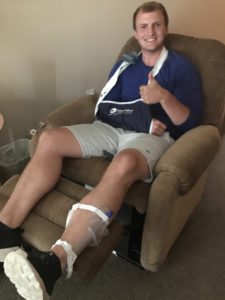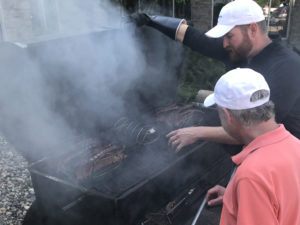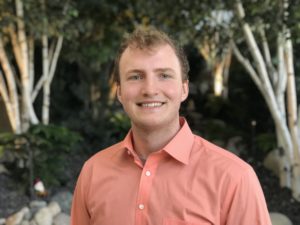Joel Admitted to Short Stay
 This week I had the opportunity to see Pioneer in a perspective that was much different from what I was accustomed to. On Friday afternoon, I was admitted to Pioneer ShortStay, and spent the night at the care center being treated as a patient. I had been planning this project for a long time, and thought that putting myself into the patient’s shoes would help me understand some of the challenges they might face in their daily lives at the care center.
This week I had the opportunity to see Pioneer in a perspective that was much different from what I was accustomed to. On Friday afternoon, I was admitted to Pioneer ShortStay, and spent the night at the care center being treated as a patient. I had been planning this project for a long time, and thought that putting myself into the patient’s shoes would help me understand some of the challenges they might face in their daily lives at the care center.
My first stop in the admission process was with our social worker, Carla, who went through all the pre-admission paperwork for a new patient or resident. This included information about the care center and the care that will be provided, resident rights, and financial information just to name a few. During the pre-admission process, information is also collected about the resident being admitted. A resident social history helps Pioneer learn about a patient’s past, and interests, to help them feel as at home as possible.
My next stop in the admission process was our nursing department. A diagnosis had already been pre-determined for me by the nursing staff; I was admitted for a stroke that affected the right side of my body. This meant that I had to keep my right arm in a sling, and walk with staff assistance and a walker. The stroke also meant that I had to eat a mechanical soft diet and drink liquids that had been thickened to help with swallowing.
After getting to my room, my nurse for the day, Amber, went over the steps for a new admit. They started with taking my vitals, and then she determined my level of pain, went over my care plan with me, and made sure that I was comfortable with everything before the stay began.
Physical Therapy then came to me to do some baseline testing to determine my balance and strength after the stroke. My therapist Terra took me for a walk, and attached a gait belt around my waist for safety measures, and for the most authentic experience of what a patient experiences after a stroke. We then did a balance assessment to determine my balance for routine daily activities and my risk for a fall.
After therapy it was time for dinner, the food was outstanding but the nectar-thick liquids might take some getting used to! After dinner, it was time to take my medication (M&Ms), and then I was free to stay in my room for the night. Aside from having my vitals checked every four hours, I slept soundly and had a great time!
Overall, the experience was very educating, and helps form a healthy perspective on what the people we care for face every day.

 Editor’s note: PioneerCare is pleased to have Joel King join us as administrative intern for the summer. During his time with us, Joel will provide observations and updates on his activities through regular blog installments. Check the news section of our web site as his story unfolds.
Editor’s note: PioneerCare is pleased to have Joel King join us as administrative intern for the summer. During his time with us, Joel will provide observations and updates on his activities through regular blog installments. Check the news section of our web site as his story unfolds. It was a very eventful two weeks at PioneerCare for me as I spent time with both the activities department, and the social services department. I really enjoyed spending time with these disciplines because it gave me a chance to get to know residents. It was fun to hear their life stories and the wisdom they have to offer.
It was a very eventful two weeks at PioneerCare for me as I spent time with both the activities department, and the social services department. I really enjoyed spending time with these disciplines because it gave me a chance to get to know residents. It was fun to hear their life stories and the wisdom they have to offer.